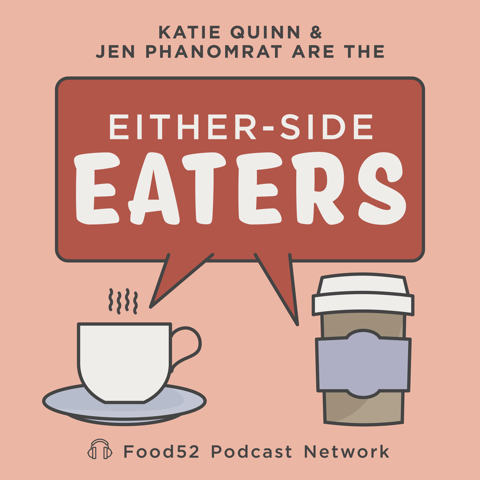Community
What Feeling “At Home” Means to Me
As the world is going stark raving mad, maybe what we don't need is more nostalgia, comfort, security, or chocolate.
Photo by Rocky Luten

On our new weekly podcast, two friends separated by the Atlantic take questions and compare notes on everything from charcuterie trends to scone etiquette.
Listen NowPopular on Food52
3 Comments
labingha
November 3, 2020
Since the death of my father-in-law in August, my family and I have been living in Sebastopol as well, relocating from our home in Berkeley. I find what I'm struggling with most is where my community is rather than where my home is. I definitely have a sense that I've abandoned my neighborhood community and my children's school community in a way that may be beneficial in the short term, but not in the long term.
Liz S.
October 30, 2020
I align with all that @M wrote and I'm unclear how the article aligns with the title.
"While I agree that this is a monumentally unsettling moment in our history, I’m suggesting that if you’re feeling nervous or angry or completely unhinged about it all, do not withdraw inward. Keep pushing to know more than what’s around you. And I mean that regardless of where you fall on the ideological spectrum." Hmmm ... I understand it is a suggestion. Not one I have or will take, though.
I am 65. I have worked from a home office as a self employed computer programmer (software developer) for 35 years. I have lived in semi-rural NW Montana for almost 27 years and prior had a 14 year Bay Area/Los Angeles residence. I grew up in NW Ohio.
I have ALWAYS felt that my physical abode was home. I never refer to nor think of Ohio (birthplace) as home.
In addition to my little (1 BR 1BA on 8 acres) stick house, I have had a motorhome for 15 years and because of my "work from home" status ... home is sometimes where the motorhome is parked.
Whether it is my stick house or my motorhome, I am very "at Home" in either and have made both "homey" to my standard of homey. And that has always been important to me. I do not consider feeling "at Home" overrated at all.
To each their own :) ... we all have an idea of what makes us comfortable.
@M also made an extremely valid point: "a response to those who have been frustrated to be restricted to it. [home]" and I think that you (author) must be included in that group. I am NOT frustrated to be restricted to my house and mostly I've made that choice regardless of COVID-19.
The meaning of "home" has not changed for me in any way. I make my "home" where I am and am happier at "home" than anywhere else.
"While I agree that this is a monumentally unsettling moment in our history, I’m suggesting that if you’re feeling nervous or angry or completely unhinged about it all, do not withdraw inward. Keep pushing to know more than what’s around you. And I mean that regardless of where you fall on the ideological spectrum." Hmmm ... I understand it is a suggestion. Not one I have or will take, though.
I am 65. I have worked from a home office as a self employed computer programmer (software developer) for 35 years. I have lived in semi-rural NW Montana for almost 27 years and prior had a 14 year Bay Area/Los Angeles residence. I grew up in NW Ohio.
I have ALWAYS felt that my physical abode was home. I never refer to nor think of Ohio (birthplace) as home.
In addition to my little (1 BR 1BA on 8 acres) stick house, I have had a motorhome for 15 years and because of my "work from home" status ... home is sometimes where the motorhome is parked.
Whether it is my stick house or my motorhome, I am very "at Home" in either and have made both "homey" to my standard of homey. And that has always been important to me. I do not consider feeling "at Home" overrated at all.
To each their own :) ... we all have an idea of what makes us comfortable.
@M also made an extremely valid point: "a response to those who have been frustrated to be restricted to it. [home]" and I think that you (author) must be included in that group. I am NOT frustrated to be restricted to my house and mostly I've made that choice regardless of COVID-19.
The meaning of "home" has not changed for me in any way. I make my "home" where I am and am happier at "home" than anywhere else.
M
October 30, 2020
The idea of "home" is the place that you can seek refuge, that you can make a source of comfort and solace. It can never be overrated if you've ever experienced any disconnect with your home, any time where forces outside of your control played a part in whether you have a home, or can access it, or can keep it. When you have been without that anchor or security, it's hard to fathom how utterly important it is.
It's not the feeling of "home" that is the problem, it's using it as a deflection or avoidance of reality in the name of comfort. And let's not forget that the call for finding comfort at home this year often comes as a response to those who have been frustrated to be restricted to it.
It's not the feeling of "home" that is the problem, it's using it as a deflection or avoidance of reality in the name of comfort. And let's not forget that the call for finding comfort at home this year often comes as a response to those who have been frustrated to be restricted to it.








Join The Conversation